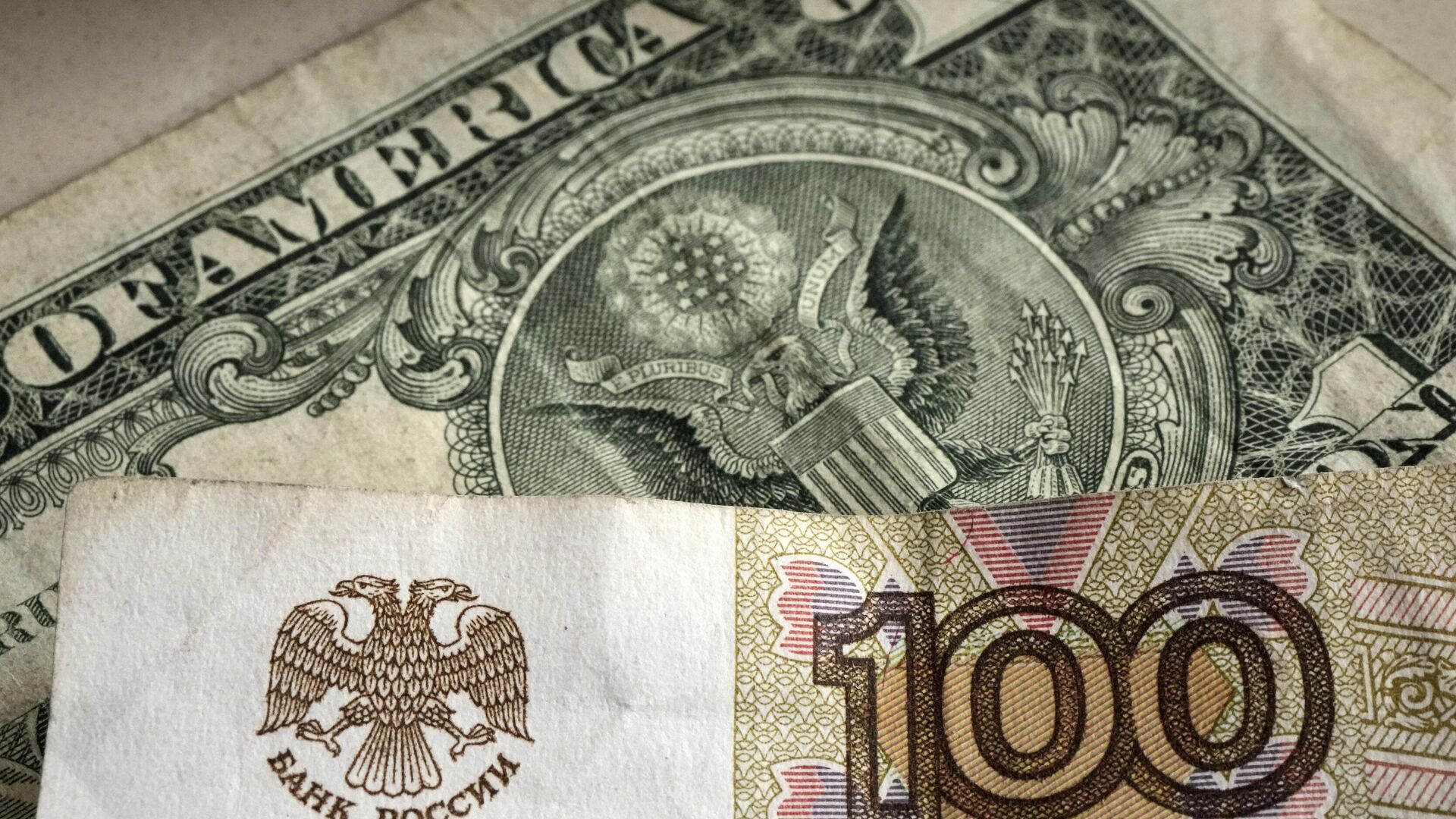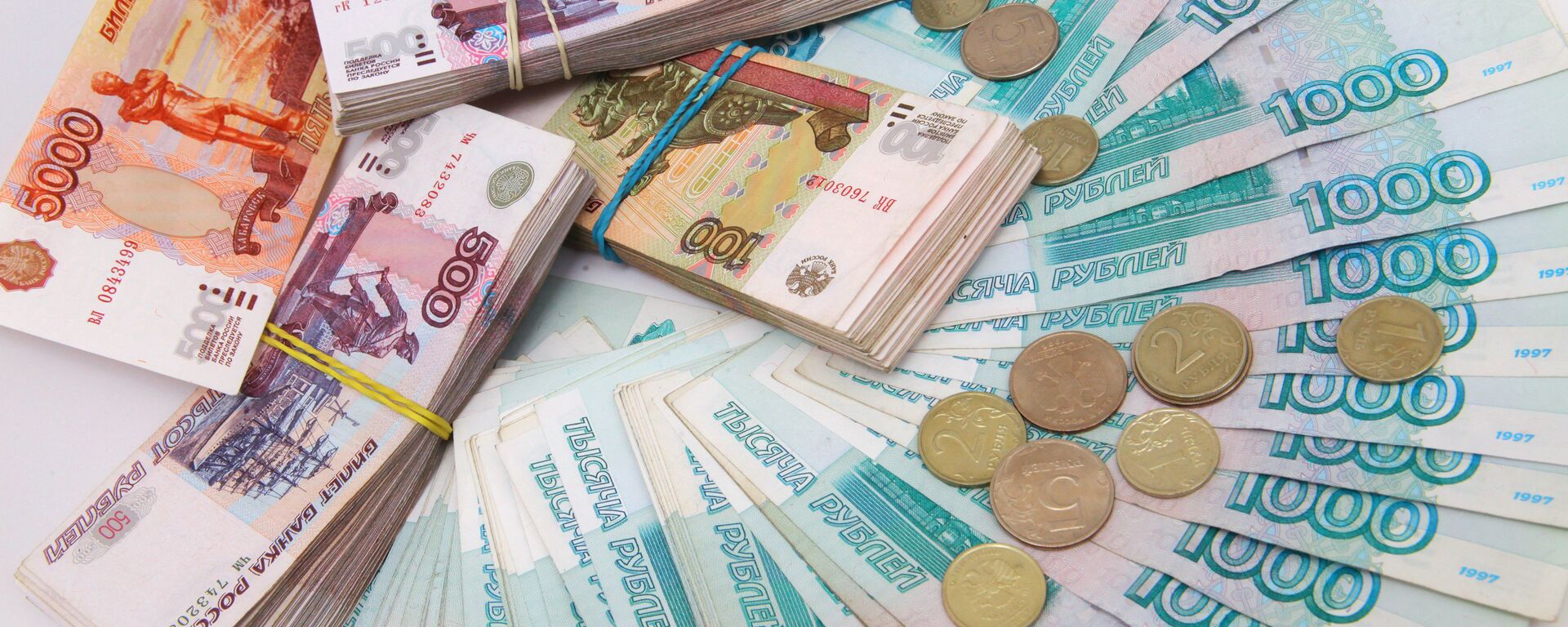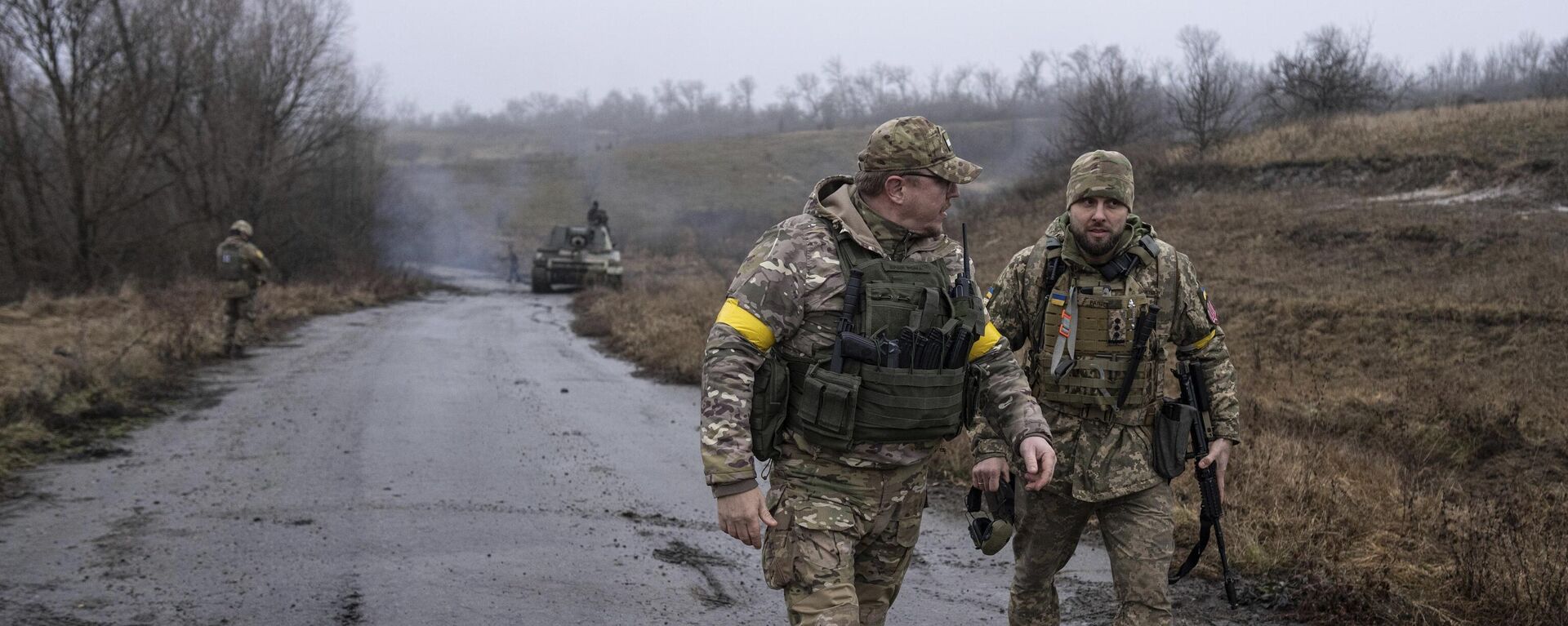https://sputnikglobe.com/20240523/wests-plan-to-seize-russian-assets-legal-loophole-or-theft-1118593293.html
West's Plan to Seize Russian Assets: "Legal Loophole or Theft?"
West's Plan to Seize Russian Assets: "Legal Loophole or Theft?"
Sputnik International
Western governments, facing legal challenges in outright seizing Russian assets, decided to use the interest generated from these assets. This strategy, they believe, exposes them to less legal liability.
2024-05-23T04:43+0000
2024-05-23T04:43+0000
2024-05-23T04:43+0000
analysis
mark sleboda
russia
ukraine
us arms for ukraine
frozen assets
foreign assets
https://cdn1.img.sputnikglobe.com/img/07e8/01/05/1115987604_0:0:3337:1878_1920x0_80_0_0_5f1557c7c8d50bdc0b4d0e4375c62286.jpg
Sleboda explained that Western governments, facing legal challenges in outright seizing Russian assets, have decided to use the interest generated from these assets. This strategy, they believe, exposes them to less legal liability.Despite this, Russia is pursuing legal avenues to reclaim its frozen assets. However, Sleboda noted that precedents set by the West's past actions, such as freezing Iranian assets, make this a challenging battle. "We've reached the level of impunity where it has generally become accepted through precedent... that the West has the legal right to freeze assets because it's not seizure," he said.Economic and Political AftermathThe broader implications of this policy are significant. Sleboda emphasized that Russia has been somewhat insulated economically due to its limited exposure to the US and its significant trade in commodities with Europe. However, the seizure of interest and potential outright theft of assets could escalate economic tensions.This tit-for-tat could severely disrupt global economic relations, especially as countries like China and Saudi Arabia observe these actions and reconsider their reliance on Western financial systems.Battlefield Implications and Western SupportOn the ground in Ukraine, the situation remains dire. Sleboda highlighted that Ukraine's defense infrastructure has faced significant setbacks, partly due to corruption and ineffective implementation of fortifications."A lot of this money was simply paid off to build fortifications to companies that don't even actually exist," he said.In addition, the Western military support strategy faces logistical and production challenges. The US and its allies struggle to meet the demand for air defense interceptor missiles, which are crucial in defending against Russian missile strikes. Sleboda stated out that the US produces only 550 of these missiles annually, a number insufficient to support both Ukraine and its own defense needs.
https://sputnikglobe.com/20240424/stealing-russian-assets-spells-end-of-us-as-bastion-for-rule-of-law-1118098163.html
https://sputnikglobe.com/20240504/corruption-speeded-up-ukraines-retreat-more-than-weapons-shortage-1118257014.html
russia
ukraine
Sputnik International
feedback@sputniknews.com
+74956456601
MIA „Rossiya Segodnya“
2024
News
en_EN
Sputnik International
feedback@sputniknews.com
+74956456601
MIA „Rossiya Segodnya“
Sputnik International
feedback@sputniknews.com
+74956456601
MIA „Rossiya Segodnya“
russian assets, mark sleboda, will west seize russian assets, what can russia do with its assets
russian assets, mark sleboda, will west seize russian assets, what can russia do with its assets
West's Plan to Seize Russian Assets: "Legal Loophole or Theft?"
In a recent interview to the Sputnik's Fault Lines podcast, international relations and security analyst Mark Sleboda discussed the West's controversial plan to utilize the interest accrued on frozen Russian assets to fund Ukraine.
Sleboda explained that Western governments, facing legal challenges in outright seizing Russian assets, have decided to use the interest generated from these assets. This strategy, they believe, exposes them to less legal liability.
"The real difference is how much they believe they will be legally held responsible in foreign courts for the theft of that," Sleboda said. The primary concern is vulnerability in courts outside Europe, such as in Southeast Asia, where Russia could file claims to recover its assets.
Despite this, Russia is pursuing legal avenues to reclaim its frozen assets. However, Sleboda noted that precedents set by the West's past actions, such as freezing Iranian assets, make this a challenging battle. "We've reached the level of impunity where it has generally become accepted through precedent... that the West has the legal right to freeze assets because it's not seizure," he said.
Economic and Political Aftermath
The broader implications of this policy are significant. Sleboda emphasized that Russia has been somewhat insulated economically due to its limited exposure to the US and its significant trade in commodities with Europe. However, the seizure of interest and potential outright theft of assets could escalate economic tensions.
"If the West outright steals all their assets, then they are in almost the equivalent... of $200, $250 billion worth of Western assets in Russia that will be seized," he warned.
This tit-for-tat could severely disrupt global economic relations, especially as countries like China and Saudi Arabia observe these actions and reconsider their reliance on Western financial systems.
"The US reaction... with this existential economic war of asset seizure and sanctions... is one of the major factors that Saudi Arabia and the United Arab Emirates have taken a step back," Sleboda noted.
Battlefield Implications and Western Support
On the ground in Ukraine, the situation remains dire. Sleboda highlighted that Ukraine's defense infrastructure has faced significant setbacks, partly due to corruption and ineffective implementation of fortifications.
"
A lot of this money was simply paid off to build fortifications to companies that don't even actually exist," he said.
In addition, the Western military support strategy faces logistical and production challenges. The US and its allies struggle to meet the demand for air defense interceptor missiles, which are crucial in defending against Russian missile strikes. Sleboda stated out that the US produces only 550 of these missiles annually, a number insufficient to support both Ukraine and its own defense needs.




